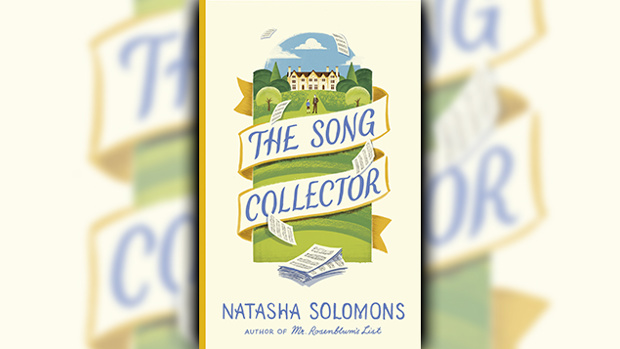Stephanie Jones: Book Review - The Song Collector by Natasha Solomons
- Publish Date
- Monday, 22 June 2015, 4:01PM

- Author
- By Stephanie Jones
“Life without her meant navigating family events without a pilot.” The enormity of loss is immediately apparent in Natasha Solomons’ beguiling fourth novel, The Song Collector. Part bildungsroman, part story of salvation, the perspective is that of Harry Fox-Talbot, known to all as Fox, who in his 70s and after a storied career as a composer finds himself widowed and utterly bereft. Fox’s love for Edie, a celebrated singer, began at the conclusion of World War II, and not without obstacle – Edie is the girlfriend of Fox’s dashing older brother Jack.
How Edie and Fox finally unite is one of the novel’s two strong narrative threads; the other is Fox’s relationship with and tutelage of his young grandson Robin, whom he chances to discover has latent musical talent and the passion to match it. At age four, Robin’s propensity for willful damage is driving his mother, Clara, the elder of Fox and Edie’s two daughters, towards a breakdown.
In discovering Robin’s gift and dedicating his time to cultivating it, Fox makes a commitment that puts him at odds with his daughters. Solomons has an eye for complex family dynamics and mysterious workings of the unconscious, and crystallizes them beautifully in a scene in which Fox throws a party for his only grandson’s fifth birthday.
Afterwards, his daughters bale him up: not only did he buy a cake that trumped Clara’s homemade one, he never troubled to organize a party for either of them, and was irritated, as a younger man, at having to attend his children’s festivities. It meant interrupting his work.
The success of the novel rests on the shoulders of Fox, who as a young man by his own measure is somewhat unimpressive, paling in comparison to his war-hero older brothers and aware of the ancillary benefits of the musical ability he discovers growing up at Hartgrove House: “. . . when I sing girls forget that I’m not as tall as they thought and not as handsome as they’d hoped.” He gathers colour and form through age and the novel’s progression, but still doubts, at the moment of crisis, that Edie will forsake all others for him.
The house towers over the story, a great expensive testament to empire and the fading fortunes of the quasi-aristocracy, and reclaimed from the British and American regiments by the three brothers as The Song Collector opens in late 1946. The building is both glorious (and gloriously described: “the buttery warmth of the stonefront, the thick limestone slabs on the roof drizzled with yellowing lichen”) and a totem of fading grandeur. Copies of Romney, Constable and Gainsborough replace originals hocked to keep up with the ruinous expense of running the estate.
There is a magnificent gentleness to Solomons’ writing even as she tells of betrayal, conflict and world-ending grief; the reader infers that one way or another, it will all be okay in the end. When, late in the novel, the narrative takes a surprising side-journey, the final, inevitable act of Fox’s life unfolds with absolute naturalism.
The Song Collector is, like Solomons’ Mr Rosenblum’s List, elegant and elegiac, and likewise centred on a man striving for improvement and solace, if not redemption. Solomons writes about love and yearning with such frank compassion that music, the material that has bound Fox’s dominant relationships, loses its significance. Instead she engineers suspense from the question of how a return to the bucolic sanctuary of a lost era will repair the fabric of a family.
Take your Radio, Podcasts and Music with you

